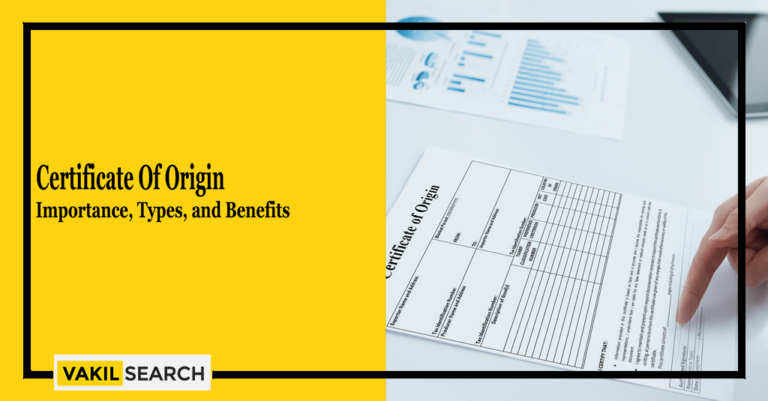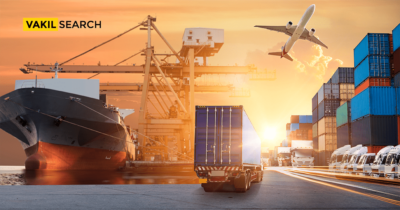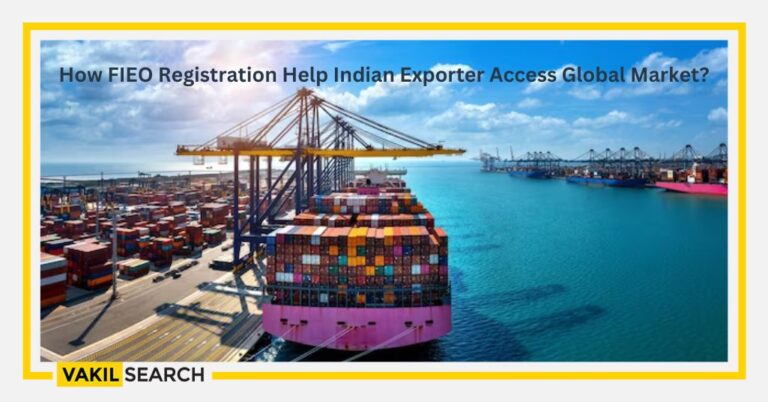This article discusses the Tariff Preferences In India
Most nations need a FIEO Certificate of Origin issuance to validate the legality of the goods being exported or imported and to ensure that the exportation or importation in question is exempt from applicable customs charges. Absolute tariff preference benefits in India provide a competitive edge for certain imported goods over domestically produced ones.
What Is Meant By The Term “Certificate Of Origin”?
A product or commodity’s country of origin may be established using a Certificate of Origin. Additional information on the goods, including their final destination and the countries from where it was shipped, is included in the product’s FIEO Certificate of Origin issuanceamong other things. When doing business across international borders or exporting goods, you must have this document to comply with international accords and treaties governing trade. The government has implemented absolute tariff benefits in India to promote trade relations with other nations.
This free trade agreement between India and Sri Lanka grants tariff concessions by the governments of both nations. FIEO is one of the institutions authorised to issue APTA Certificates. Under this agreement, only the Export Inspection Council is authorised to issue Certificates of Origin.
Providing Evidence Of A Product’s Country Of Origin
To establish where a product comes from, customs agents need a Certificate of Origin to show. Customs officials will not allow goods to be exported or imported without a Certificate of Origin. With the help of the Certificate, the Customs officer can decide whether or not the items are prohibited. If they are, they will establish the appropriate tariffs.
In addition to the Chamber of Commerce, the Certificate of Origin is required.
There is a possibility that the government of the nation from where your goods are imported may need a certificate of origin to confirm the country of origin. This is a tool that importers often use to estimate the tariffs they will need to pay when they bring your products into the nation.
Most nations recognise a standard form for a certificate of origin. This form comprises, among other things, information on the exporter and importer, the description and harmonised tariff code of the products, and the country from where the goods originated.
You can generate an electronic certificate of origin right here in a few moments and with a few clicks.
Importers rely heavily on the aid of their American suppliers when it comes to producing correct and well-documented declarations of origin for their products. In most cases, the exporter is the one to provide these certifications, and the chamber of commerce is the one to stamp them.
There are two possible varieties of origin certificates that a chamber of commerce may issue:
-
Certificates of Origin of Non-Preferential Status:
The most fundamental certificate that chambers of commerce may issue is a standard or generic certification of origin. Certificates issued under the Free Trade Agreement (FTA) attest that the nation of origin of the goods in question does not warrant any special treatment.
-
Certificates of Origin Favoring Certain Countries:
Suppose the export of a product is accompanied by the appropriate documentation for a certain free trade agreement, which includes this certificate. In that case, the export may be eligible for tax reduction or exemption from taxes entirely. If the origin of the items can be established without a doubt, priority certificates take on an even greater level of significance in free trade agreements.
Tariff Benefits in India
-
The generalised preference system is abbreviated as GSP.
This method benefits industrialised and rich nations since it gives developing countries priority status in the trade tariffs imposed by those countries. In this unilateral and non-contractual approach, tariff concessions are not shown in exchange for one another.
-
Under the context of the Global Trade Preference System, preferences
Using this technique makes it feasible to bring about reductions in tariffs for trade between developing nations that are parties to an agreement. The Export Inspection Council is the body that issues the Certificate of Origin for GSTP (EIC).
-
The Trans-Pacific Partnership, sometimes known as the TPP
Thanks to APTA, India, China, South Korea, Sri Lanka, and Bangladesh are all eligible for tariff reductions. The efforts of APTA to reduce tariff and non-tariff obstacles to trade will be to the region’s advantage, overseen by the Economic and Social Commission for Asia and the Pacific (ESCAP).
-
Agreement Concerning International Trade (ISLFTA)
A free trade agreement (FTA) between India and Sri Lanka has been signed. As a direct consequence of this agreement, EIC is the only entity with authority to issue Certificates of Origin.
-
India-Thailand FTA:
By the terms of this agreement between India and Thailand, the Early Harvest Scheme will be awarded preferential tariff treatment for the goods it covers. Notice number 101/2004-Customs was issued by the Ministry of Finance’s Department of Revenue, Customs on August 31, 2004.
They established the Rules of Origin requirements, which grant duty benefits for commodities imported under the Early Harvest Scheme of the India-Thailand Free Trade Agreement that meet these requirements. In line with the terms of this protocol, the only organisation permitted to issue Certificates of Origin is the Export Inspection Council (CO).
-
Comprehensive Economic Partnership Agreement Between India and Malaysia
As a result of an agreement between India and Malaysia, the EIC has the only authority to issue Certificates of Origin for goods.
-
Concurrence (CEPA)
The Comprehensive Economic Partnership Agreement (CEPA) was signed between India and the Republic of Korea to develop economic and commercial ties between the two nations. As a direct consequence of this agreement, EIC is the only entity with the legal authority to issue Certificates of Origin. Japan and India have agreed to form a partnership to promote comprehensive economic cooperation.
-
India and the Association of Southeast Asian Nations Have Reached a Free Trade Agreement:
An agreement was made between India and Japan to ensure the security of any financial transactions between the two nations. Under these parameters, the EIC is the only entity with authority to issue Certificates of Origin. \s. Instructions on How to Obtain a Certificate of Origin
Depending on the nation you are exporting to and whether or not you are eligible to take advantage of cheaper tariff rates, obtaining a Certificate of Origin could require you to get in touch with several different government authorities.
Applicants are required to produce the following paperwork to be considered for a Certificate of Origin:
- Composed at the very last moment before the Certificate of Origin is sent.
- Information about the product’s export, including amount and provenance.
- A second copy of the packing list corresponds to the corresponding invoice.
- Each of the Certificates of Origin has been copied eight times.
- The cost associated with each certificate.
Conclusion
Many businesses enjoy absolute tariff benefits in India when exporting their products to certain countries. Chambers of commerce may be helpful resources for businesses that export goods. Keep abreast of the activities at your local chamber of trade so that you won’t lose out on any opportunities to participate in events or initiatives relevant to exporting. Vakilsearch can help you with more information on these topics.
FAQs
Does FIEO issue Certificate of Origin?
Yes, FIEO is one of the agencies authorized to issue a Non-Preferential Certificate of Origin.
How can I get FIEO certificate?
To get an FIEO certificate, an exporter is required to get a Registration-cum-Membership Certificate (RCMC).
Is it mandatory to register with FIEO?
It is not mandatory to register with FIEO, but an exporter is required to get an RCMC to avail of various benefits under the Foreign Trade Policy.
What is difference between FIEO and RCMC?
FIEO is an organization in India that was established to promote Indian exports, while RCMC is a certificate issued to members of FIEO.
What are the benefits of tariffs?
Tariffs can be used to protect domestic industries, generate revenue for the government, and regulate trade.
What are tariffs in India?
Tariffs in India are taxes imposed on imported goods.
What are the benefits of trade in India?
Trade in India can lead to economic growth, job creation, and increased access to goods and services.
What are the 4 types of tariffs?
The four types of tariffs are ad valorem, specific, compound, and prohibitive
Also, Read:










